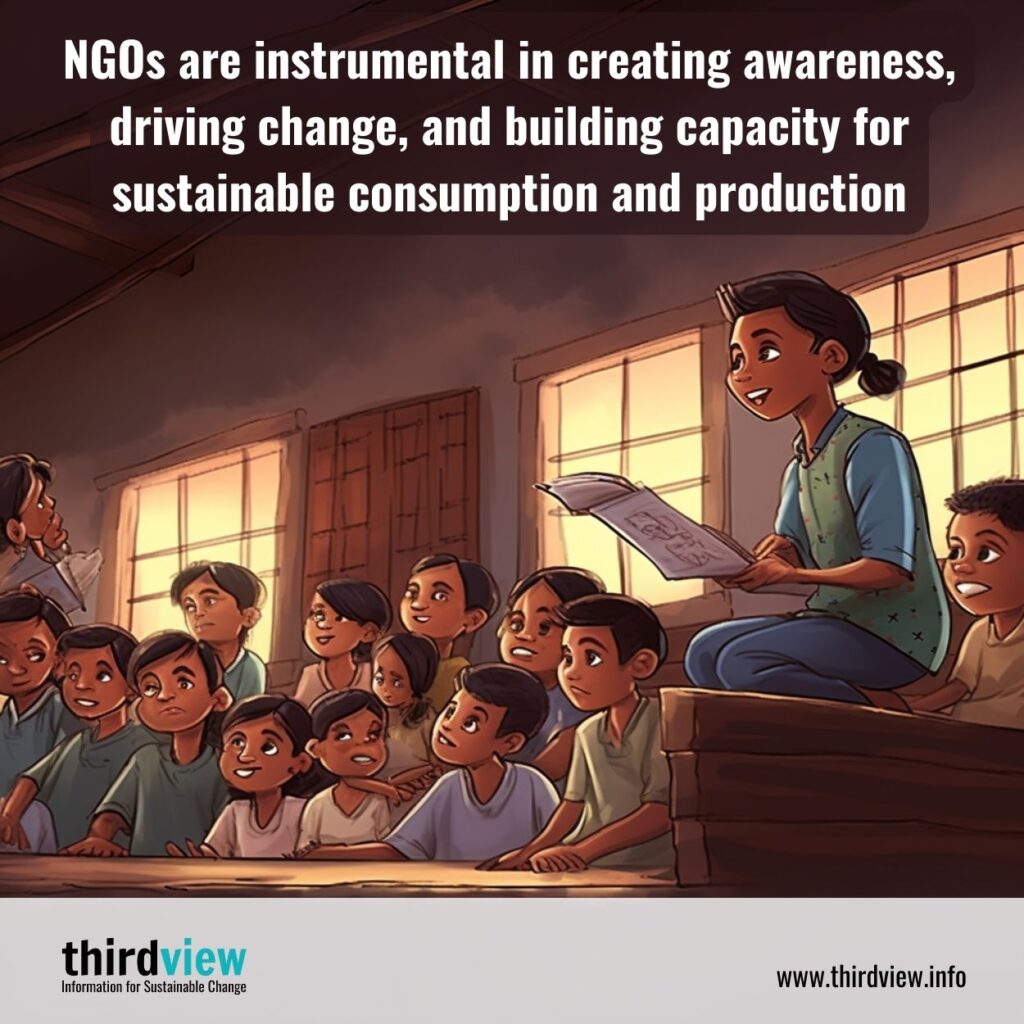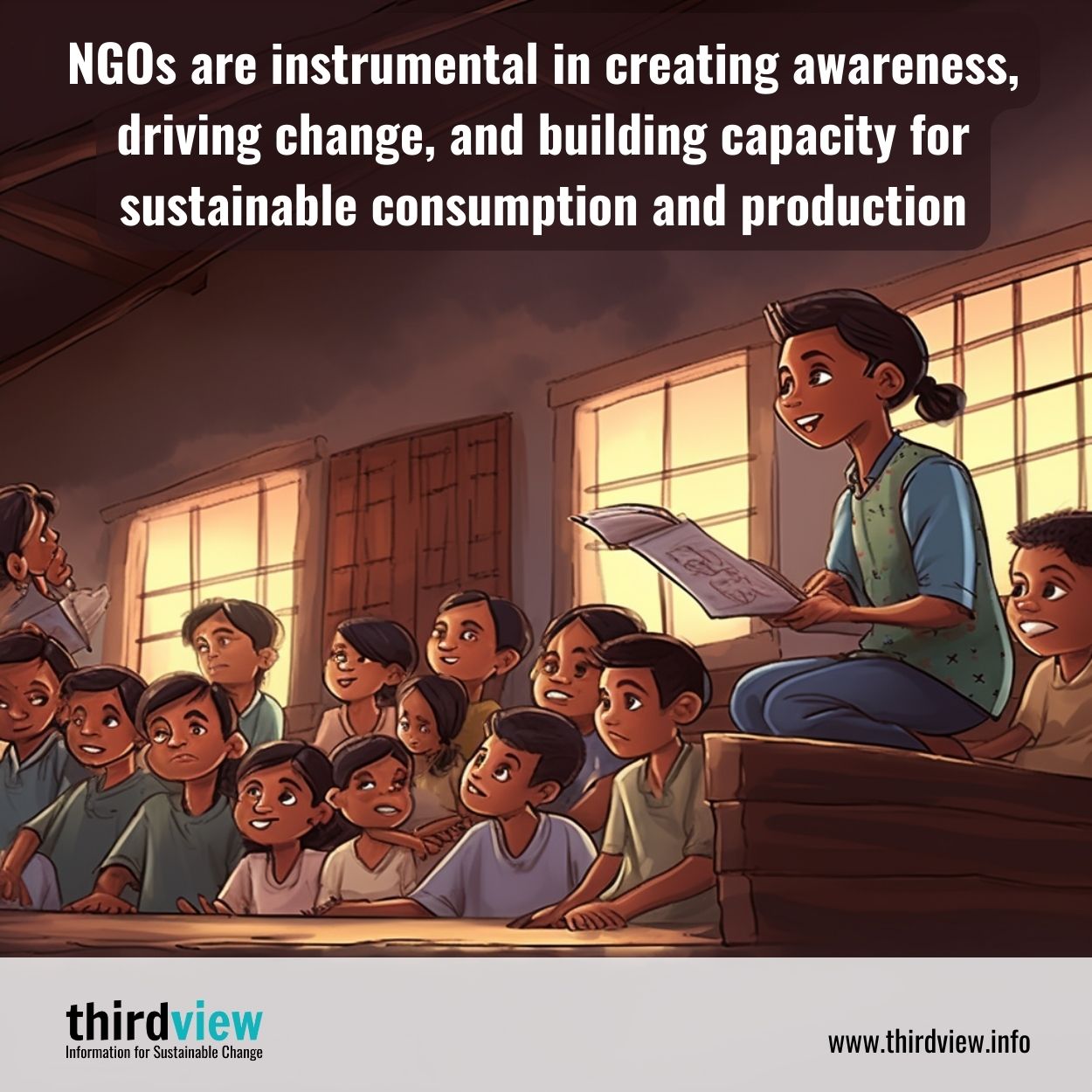With increasing concern over the impact of climate change, sustainable development has become the major focus of all governments and people across the world. One of the issues that need to be addressed is sustainable consumption and production: this involves many private, public, and civil society organizations. In particular, non-governmental organizations (NGOs) have become an integral part of this movement as they play a critical role in creating awareness, driving change in behaviour, and influencing policies. This blog post will explore the significance of NGOs in achieving sustainable consumption and production patterns.
Raising Awareness
One of the crucial roles that NGOs play in enforcing sustainable consumption and production is raising the awareness of the public. Most NGOs have specialized in educating the community on environmental issues such as waste management, energy conservation, and responsible sourcing. For instance, Greenpeace has been successful in creating awareness through different media, including social media campaigns, to draw attention to environmental injustices. As a result, these awareness sessions have encouraged many individuals to adopt sustainable practices.
Advocacy and Policy Design
NGOs are the voice of the people, acting as advocates for change. Thus, NGOs have an essential role to play in influencing policymaking at regional, national, and international levels in relation to environmental issues. Some NGOs have even created forums where they invite policymakers to participate in discussions on sustainable practices. This involvement ensures that policymakers understand the real issues affecting the environment and work towards developing sustainable policies. WWF’s collaboration with policymakers is one example of successful NGO advocacy. The NGO was instrumental in shaping wildlife conservation policy for nearly two decades in the United States.
Lobby and Partnerships
NGOs have a strong voice due to their connection with their members and other civil society organizations. When working collaboratively, they can create a powerful message that can influence businesses’ behaviour and practices. Many NGOs work closely with corporations and other private sector organizations to influence policy changes, product development, and responsible corporate behaviour. The example of the partnership between Greenpeace and Raffaello Ferrero shows how a successful collaboration can lead to profound social and environmental changes within a company.
Driving Change
With the support of the general public, NGOs have the power to drive change in behaviour. Many NGO campaigns have been influential in calling for changes in production processes and packaging. Therefore, by putting measurable outcomes in place when working with businesses and consumers, NGOs can initiate change and work towards creating new markets for sustainable products. One of the successful changes is the Organic Farming scheme that has helped reduce the usage of pesticides and herbicides in the UK agricultural sector.
Capacity Building
Building capacity is another essential role that NGOs play in promoting sustainable consumption and production patterns. NGO’s training initiatives aim to increase the skills of communities, mainly in rural areas, so they can actively engage in environmental conservation. For example, The Forest Trust has invested in training programs for small-scale farmers in the Brazilian Amazon to reduce deforestation rates by improving agricultural practices.
In conclusion, achieving sustainable consumption and production practices require a multi-faceted approach that involves corporates, governments, communities, and individuals. However, NGOs play a critical role in driving change by raising awareness, advocating for sustainable policies, building capacity, and driving change in behaviour. As we embrace this critical movement, NGOs remain a vital force in our journey to achieving a cleaner, healthier environment. Therefore, governments should work towards creating policies that not only support but actively engage and encourage NGOs and their initiatives.


